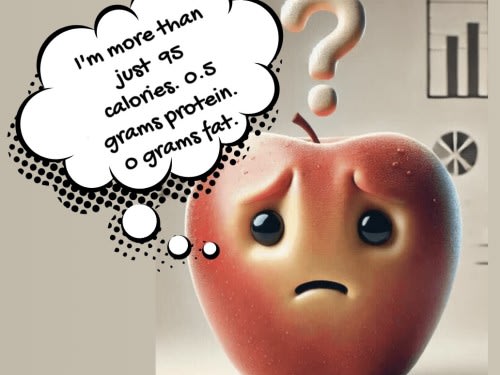Weight Loss Drugs and Mental Health

posted 29th May 2025

Navigating the Mental Health Landscape of GLP-1 Weight Loss Medications: Promise, Pitfalls, and Psychological Insight
The surge in popularity of GLP-1 receptor agonists such as Ozempic (semaglutide), Wegovy (semaglutide), and Mounjaro (tirzepatide) marks a new era in weight management. Originally designed for type 2 diabetes, these drugs have shown remarkable weight loss effects and are now being widely used off-label by individuals seeking to manage obesity or lose significant weight. While the physical benefits are clear, the mental health implications of these medications are only beginning to be understood.
Understanding GLP-1 Agonists
GLP-1 receptor agonists work by mimicking the natural hormone glucagon-like peptide-1. They slow gastric emptying, enhance insulin secretion, reduce glucagon levels, and, crucially, suppress appetite. This leads to a significant reduction in caloric intake and often results in substantial weight loss. But weight loss, especially rapid and pharmacologically driven, is rarely a purely physical journey—it’s deeply psychological too.
Positive Mental Health Outcomes
For many, the weight loss induced by GLP-1 drugs brings notable mental health benefits. Confidence improves, social anxiety reduces, and mood often lifts. Anecdotal reports and social media testimonials frequently highlight increased energy, motivation, and self-worth. A study published in Healthline even indicated a correlation between GLP-1 use and reduced diagnoses of depression and anxiety. This is hardly surprising, as physical appearance and weight are closely tied to self-esteem and social identity in Western culture.
The Psychological Caveats
However, this is not the whole story. Emerging reports—both anecdotal and clinical—suggest that the relationship between GLP-1 drugs and mental health is complex and potentially fraught. Some users experience a flattening of affect, emotional numbness, or a loss of pleasure in previously enjoyed activities. This may be due to the dampening of the dopamine reward pathway associated with food.
One Reddit user shared: "I was thrilled to be losing weight, but after two months on Wegovy I felt like a shell of myself. I wasn’t happy. I wasn’t sad. I just didn’t care anymore." Others have noted a return of depressive symptoms after the initial high of weight loss fades, sometimes without realising the medication may be a contributing factor.
These experiences point to the importance of close psychological monitoring. GLP-1 medications are not inherently dangerous to mental health, but they do interact with it in subtle and unpredictable ways—especially for those with a history of depression, anxiety, eating disorders, or addiction.
Alcohol and Food: Reframing Relationships
Another critical area of concern is alcohol use. Rapid weight loss can alter alcohol tolerance, and those who have relied on alcohol or food for emotional regulation may find themselves facing new challenges. There is anecdotal evidence that some users, having lost their coping mechanism of food, turn to alcohol—sometimes with dangerous consequences.
A person with a history of binge eating who loses their appetite due to GLP-1 treatment may not automatically develop a healthier relationship with food. In fact, without psychological intervention, they may develop a more problematic one—marked by guilt, restriction, or emotional suppression. The appetite-suppressing nature of these drugs can obscure unresolved psychological issues with food, leading to relapse once medication is stopped.
The Weight Regain Dilemma
One of the most significant criticisms of GLP-1 drugs is what happens when people stop taking them. Studies show that many regain a substantial portion, if not all, of the weight they lost. This is unsurprising: the medication suppresses appetite, but it doesn’t address the underlying behaviours, thought patterns, or environmental triggers that contribute to weight gain. Once the medication is withdrawn, the old neural and behavioural patterns often return.
This highlights the importance of combining pharmacological intervention with psychological support. A psychologist can help individuals build sustainable habits, develop mindful eating practices, manage stress, and process the emotional aspects of body image and weight. Cognitive behavioural therapy (CBT), in particular, can be highly effective in helping individuals understand their triggers and develop new coping strategies.
Monitoring and Awareness: Essential for Mental Wellbeing
- Anyone considering or currently using GLP-1 weight loss medications should:
- Inform their GP and mental health professionals of their medication use
- Keep a thought or mood diary to track emotional changes
- Be cautious with alcohol and substances, especially during periods of rapid weight loss
Seek therapy or psychological support to address the mental and behavioural aspects of weight
GLP-1 agonists offer enormous promise in the battle against obesity and its physical and emotional toll. But as with any powerful intervention, they require careful management. The mental health side effects are real, though not universal, and deserve greater research, discussion, and professional support.
In this uncharted mental health territory, awareness and monitoring are not optional—they’re essential. Weight loss can transform lives, but transformation is most sustainable when it includes the mind as well as the body.



